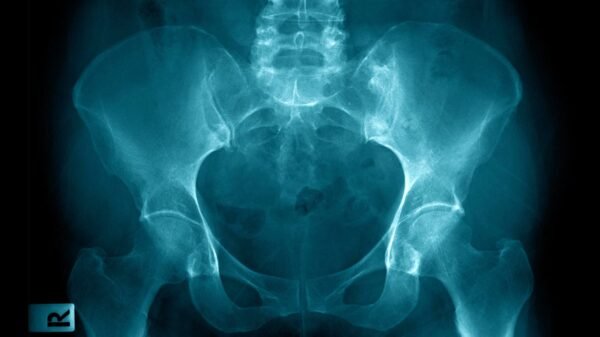Analysis from Radboud college medical heart exhibits that the lockdowns in the course of the COVID-19 pandemic had a big influence on individuals’s immune response to microorganisms. In the course of the lockdown, irritation stage within the physique was low, however afterwards, the immune system reacted extra intensely to viruses and micro organism. The outcomes at the moment are revealed in Frontiers of Immunology.
On this examine, the researchers examined the results of varied well being measures launched in the course of the pandemic, similar to lockdowns and vaccinations. The examine was carried out in a big cohort of individuals residing with HIV, in addition to in wholesome people. The researchers discovered that irritation biomarkers within the blood have been low in the course of the lockdown for individuals in each teams. Nevertheless, once they uncovered immune cells from the blood to microorganisms like viruses and micro organism within the lab, the immune system reacted a lot stronger than immune cells of people exterior the lockdown.
Hygiene Speculation
As a potential clarification for this robust immune response, Professor Mihai Netea from Radboud college medical heart factors to the hygiene speculation. This speculation means that common contact with microorganisms is helpful as a result of it retains the immune system each energetic and tolerant on the similar time. An absence of publicity to environmental elements would possibly contribute to an immune system that overreacts, doubtlessly resulting in systemic reactions similar to these encountered in inflammatory illnesses and allergic reactions.
Netea: ‘In our each day lives, we’re continually uncovered to numerous micro-organisms. This helps prepare our immune system, instructing it to acknowledge which microorganisms are harmful and that are innocent. In the course of the lockdown, we missed that interplay as a result of everybody stayed house and averted one another. Because of this, throughout and instantly after the lockdown intervals, immune cells uncovered to micro-organisms displayed a much less well-regulated response, predisposing to hyperinflammation.’
Research Design
This analysis was made potential by way of a big examine on individuals with HIV, initiated by Radboudumc and three different HIV therapy facilities within the Netherlands. Recruitment for the examine befell between October 2019, simply earlier than the COVID-19 pandemic, and October 2021. A complete of 1,895 individuals with HIV are collaborating on this examine, which is a part of a broader analysis venture on immune system perform and the range of immune responses.
The examine individuals have been divided into 4 teams:
- 368 people enrolled earlier than the pandemic
- 851 people enrolled after the lockdown, however earlier than vaccination or a COVID-19 an infection
- 175 people who had contracted a COVID-19 an infection
- 404 vaccinated people
Within the lab, the researchers measured the extent of irritation within the individuals’ blood. In addition they examined the interplay between remoted blood cells and viruses and micro organism.
Subsequently, the findings have been validated in cohort of 30 wholesome people examined throughout or after the lockdown interval. Professor Andre van der Ven: ‘The outcomes of this examine primarily mirror individuals residing with HIV, however we additionally examined a wholesome management group. We noticed related outcomes on this group, suggesting the results might apply to the broader inhabitants. Nevertheless, extra analysis is required for this group.’
Consciousness of Influence
The examine additionally revealed that vaccines and a COVID-19 an infection influenced the immune system’s response, however these results have been comparatively small and short-lived, Netea defined, and have been negligible in comparison with the influence of the lockdowns on the immune system. Netea: ‘Lockdowns have been essential in the course of the pandemic, particularly firstly. Nevertheless, it’s important that we achieve extra perception into how social interactions have an effect on and activate our immune system, so we will higher handle the results. This manner, we will apply such drastic social measures successfully and safely in a future pandemic.’




















































